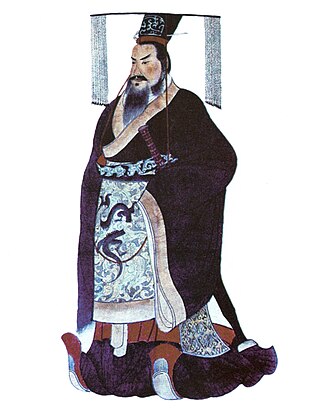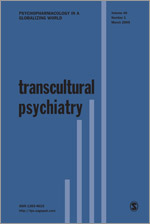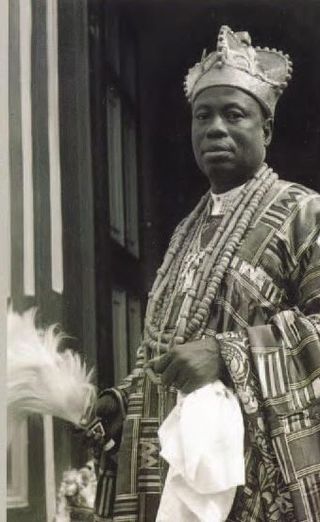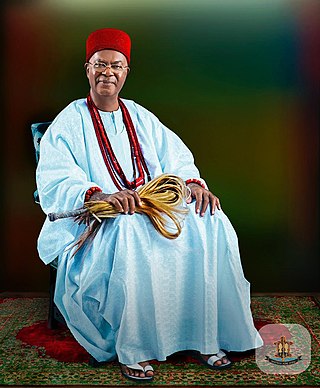Sociolinguistics is the descriptive study of the effect of any or all aspects of society, including cultural norms, expectations, and context, on language and the ways it is used. It can overlap with the sociology of language, which focuses on the effect of language on society. Sociolinguistics overlaps considerably with pragmatics and is closely related to linguistic anthropology.

Conflict theories are perspectives in sociology and social psychology that emphasize a materialist interpretation of history, dialectical method of analysis, a critical stance toward existing social arrangements, and political program of revolution or, at least, reform. Conflict theories draw attention to power differentials, such as class conflict, and generally contrast historically dominant ideologies. It is therefore a macro-level analysis of society.

The nobility of China represented the upper strata of aristocracy in premodern China, acting as the ruling class until c. 1000 CE, and remaining a significant feature of the traditional social structure until the end of the imperial period.
The term social order can be used in two senses: In the first sense, it refers to a particular system of social structures and institutions. Examples are the ancient, the feudal, and the capitalist social order. In the second sense, social order is contrasted to social chaos or disorder and refers to a stable state of society in which the existing social structure is accepted and maintained by its members. The problem of order or Hobbesian problem, which is central to much of sociology, political science and political philosophy, is the question of how and why it is that social orders exist at all.
Ascribed status is a term used in sociology that refers to the social status of a person that is assigned at birth or assumed involuntarily later in life. The status is a position that is neither earned by the person nor chosen for them. Rather, the ascribed status is assigned based on social and cultural expectations, norms, and standards. These positions are occupied regardless of efforts or desire. These rigid social designators remain fixed throughout an individual's life and are inseparable from the positive or negative stereotypes that are linked with one's ascribed statuses.

Social stratification refers to a society's categorization of its people into groups based on socioeconomic factors like wealth, income, race, education, ethnicity, gender, occupation, social status, or derived power. As such, stratification is the relative social position of persons within a social group, category, geographic region, or social unit.
A chiefdom is a form of hierarchical political organization in non-industrial societies usually based on kinship, and in which formal leadership is monopolized by the legitimate senior members of select families or 'houses'. These elites form a political-ideological aristocracy relative to the general group.

The sociology of culture, and the related cultural sociology, concerns the systematic analysis of culture, usually understood as the ensemble of symbolic codes used by a member of a society, as it is manifested in the society. For Georg Simmel, culture referred to "the cultivation of individuals through the agency of external forms which have been objectified in the course of history". Culture in the sociological field is analyzed as the ways of thinking and describing, acting, and the material objects that together shape a group of people's way of life.

Social inequality occurs when resources in a given society are distributed unevenly, typically through norms of allocation, that engender specific patterns along lines of socially defined categories of persons. It poses and creates a gender gap between individuals that limits the accessibility that women have within society. The differentiation preference of access to social goods in the society is brought about by power, religion, kinship, prestige, race, ethnicity, gender, age, sexual orientation, and class. Social inequality usually implies the lack of equality of outcome, but may alternatively be conceptualized in terms of the lack of equality in access to opportunity. This accompanies the way that inequality is presented throughout social economies and the rights that are skilled within this basis. The social rights include labor market, the source of income, health care, and freedom of speech, education, political representation, and participation.

Elitism is the belief or notion that individuals who form an elite—a select group of people perceived as having an intrinsic quality, high intellect, wealth, power, notability, special skills, or experience—are more likely to be constructive to society as a whole, and therefore deserve influence or authority greater than that of others. The term elitism may be used to describe a situation in which power is concentrated in the hands of a limited number of people. Beliefs that are in opposition to elitism include egalitarianism, anti-intellectualism, populism, and the political theory of pluralism.

Sociology is a social science that focuses on society, human social behavior, patterns of social relationships, social interaction, and aspects of culture associated with everyday life. In simple words sociology is the scientific study of society. It uses various methods of empirical investigation and critical analysis to develop a body of knowledge about social order and social change. While some sociologists conduct research that may be applied directly to social policy and welfare, others focus primarily on refining the theoretical understanding of social processes and phenomenological method. Subject matter can range from micro-level analyses of society to macro-level analyses.
Ancient Mayan social classes included a complex relationship between elites, including kings and merchants, and commoners. The highest ancient Mayan social class included a single centralized leader known as the king or Kʼuhul ajaw, who was most often a man but occasionally a woman. The king's power derived from religion and control over resources, and this power was reinforced by other elites, including merchants. This faction of ancient Mayan social classes arose when some individuals gained greater access to resources than others, increased internal and external trade, and specialized in the manufacturing and selling of goods. This influx of wealth for subsections of the ancient Mayan population further subdivided the upper and lower classes, and wealth became a source of power for the elites.
Academic ranks in the United States are the titles, relative importance and power of professors, researchers, and administrative personnel held in academia.

Nobility is a social class found in many societies that have an aristocracy. It is normally ranked immediately below royalty. Nobility has often been an estate of the realm with many exclusive functions and characteristics. The characteristics associated with nobility may constitute substantial advantages over or relative to non-nobles or simply formal functions, and vary by country and by era. Membership in the nobility, including rights and responsibilities, is typically hereditary and patrilineal.

Transcultural Psychiatry is a peer-reviewed academic journal that publishes papers in the fields of cultural psychiatry, psychology and anthropology. The journal's editor-in-chief is Laurence J. Kirmayer. The Associate Editors are Renato Alarcón, Roland Littlewood and Leslie Swartz. It has been in publication since 1964 and is currently published by SAGE Publications on behalf of the Division of Social and Transcultural Psychiatry of McGill University. It is the official journal of the World Psychiatric Association Transcultural Psychiatry Section and is also published in association with the Society for the Study of Psychiatry and Culture.

In anthropology, a house society is a society where kinship and political relations are organized around membership in corporately-organized dwellings rather than around descent groups or lineages, as in the "House of Windsor". The concept was originally proposed by Claude Lévi-Strauss who called them "sociétés à maison". The concept has been applied to understand the organization of societies from Mesoamerica and the Moluccas to North Africa and medieval Europe.
The term classless society refers to a society in which no one is born into a social class. Distinctions of wealth, income, education, culture, or social network might arise and would only be determined by individual experience and achievement in such a society. Thus, the concept posits not the absence of a social hierarchy but the uninheritability of class status. Helen Codere defines social class as a segment of the community, the members of which show a common social position in a hierarchical ranking. Codere suggest that a true class-organized society is one in which the hierarchy of prestige and social status is divisible into groups. Each group with its own social, economic, attitudinal and cultural characteristics, and each having differential degrees of power in community decision.
Grade-taking is a term used in anthropology for social systems under which individuals rise in status and authority by performing a series of ceremonies. Grade-taking was the system of leadership in pre-colonial societies of northern Vanuatu, typically involving the killing of valuable pigs; it is still actively practiced in some areas.

The Nigerian Chieftaincy is the chieftaincy system that is native to Nigeria. Consisting of everything from the country's monarchs to its titled family elders, the chieftaincy as a whole is one of the oldest continuously existing institutions in Nigeria and is legally recognized by its government.

The social structure in Nigeria is the hierarchical characterization of social status, historically stratified under the Nigerian traditional rulers and their subordinate chiefs, with a focus on tribe and ethnicity which continued with the advent of colonization.









